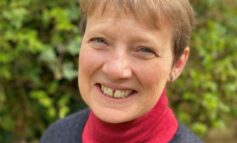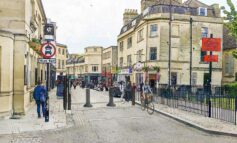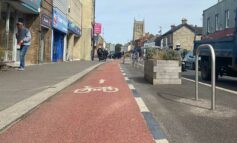Bath & North East Somerset Council has outlined its four-year financial plan, aimed at protecting essential frontline services through increasing efficiency and generating new income.

The proposals being put forward are based upon the initial set of findings from a spending review launched by the Council’s Cabinet in July, which addressed the need to find around £38 million in budget savings over the next four years.
The plans aim to protect frontline services as far as possible by increasing efficiency, growing income and finding new and innovative ways of delivering vital local services.
Councillor Charles Gerrish (Conservative, Keynsham North), Cabinet Member for Finance & Efficiency said: “This spending review has been undertaken in the context of the most challenging set of financial circumstances the Council has ever faced – with continued reductions in funding from central government alongside ever-increasing demand for services, such as care for older people.
“We have therefore put all aspects of Council spending under the microscope to ensure that no stone is left unturned in our efforts to tackle waste, increase efficiency and protect vital services.
“Of the £38 million worth of savings that we originally set out to find over the next four years, we have already identified approximately £19 million – this is made of up of a combination of efficiencies, increased income through sound investments, and finding new ways of delivering services.
“We are making good progress on this spending review and will be carrying out further reviews in the months and years ahead to look for additional areas where we can save money and generate income.
“Clearly this process has not been without some difficult decisions, and there will obviously have to be further decisions over what spending to prioritise as we work to find the remaining savings as this review continues.”
Detailed budget proposals for 2016/17 will be developed by the Cabinet following Government announcements about local government funding expected towards the end of this year, leading to a final budget decision by the Council in February.
Of the savings identified so far:
- £7 million has been achieved through reviewing the Council’s financial assumptions and taking into account new Government policies such as the 1% cap on public sector pay rises;
- £5 million will be saved by increasing efficiencies and service redesign;
- £7 million comes from generating new income;
- £19 million still needs be identified over the four-year period, through planned reviews to find new areas of saving money and generating income.
Protecting frontline services
The Council is committed to protecting frontline services such as:
- Children’s and youth services, including Children’s Centres and child protection services.
- Schools, including investment in new schools and school buildings.
- Adult health and social care services.
- Environmental services including street cleansing, waste recycling, LED street lighting, environmental health, with no further public toilet closures.
- Affordable housing delivery.
- Planning, regeneration and business support.
- Maintaining and improving the highway network and its safety.
- Leisure services, to support a 1% year on year increase in participation in physical activity.
Increasing efficiency and service redesign
A number of areas where the Council can save money through increasing efficiency and finding new and innovative ways of delivering services have been identified, including:
- Internal savings, such as new ways of working/delivering services, and improving financial efficiencies.
- Exploring more opportunities for sharing services and collaborating with other organisations, including health organisations and local authorities. This includes continuing to deliver shared public service one stop shops.
- Health and social care services for the most vulnerable, including children and older people, are a key priority. Increasing demand for these services is extremely challenging so through Your Care Your Way the Council is working with partners, including the NHS, to look at new ways of working.
- Putting in place more early-intervention services to help people before illnesses deteriorate or they need hospital treatment.
- Building on the success of the Connecting Families programme to support vulnerable families, focussing on early help so that fewer children have to go into care.
Growing income
The plan is to generate around £7 million over the four-year period from new additional income in innovative ways. Work will begin in 2016/17 and will include:
- Growing the visitor economy, with more markets, pop-ups and events – working with local partners. Expected to generate £300,000 in 2016/17 and increasing.
- Increasing Heritage Services’ contribution – supported by increasing investment in the planned Archway Centre. £350,000 in 2016/17 and increasing.
- More weddings and events at local parks. £50,000 in 2016/17 and increasing.
- Up to £2.3m investment into Digital B&NES to improve connectivity to support local businesses as well as generating income for the Council. £100,000 in 16/17, potentially increasing by £1m by 2020.
- Growing income from the Council’s commercial estate. £375,000 in 2016/17, growing in future years.
- Developing the CCTV service to operate on a more commercial footing, providing services to other organisations. £50,000 in 2016/17 and increasing.
- Setting up a property company or joint venture which would enable housing to rent on Council-owned land or vacant accommodation above shops. This innovative idea is at a very early stage.
The Council is holding five budget engagement meetings across the area hosted by the Connecting Communities Area Forums.
Members of the public can attend and there will be an opportunity to ask questions and feed into the discussions on the budget proposals.
The Council’s Policy Development and Scrutiny panels will also be looking at the detail and more information will be available as part of the agenda papers for their November meetings.
The meetings will take place as follows:
- 19th November, 6pm:
Bathavon Area Forum, Sixth Form Building, St Gregory’s Secondary School, Combe Hay Lane, Bath BA2 8PA
- 23rd November, 6pm:
Chew Valley Area Forum, Chew Valley Secondary School, Chew Lane, Chew Magna, Bristol, BS40 8QB
- 24th November, 6pm:
Keynsham Area Forum, The Community Space, Market Walk, Keynsham, Bristol, BS31 1FS
- 26th November, 6pm:
Bath City Forum, The Banqueting Room, The Guildhall, High Street, Bath BA1 5AW
- 30th November, 6pm:
Somer Valley Area Forum, Conygre Hall, North Rd, Timsbury, Bath BA2 0JQ
The Council would like members of the public to register if they are planning to attend on the website www.bathnes.gov.uk/budget-fair-consultation-2015
Or contact Mark Hayward on 01225 396975 or e-mail [email protected].



